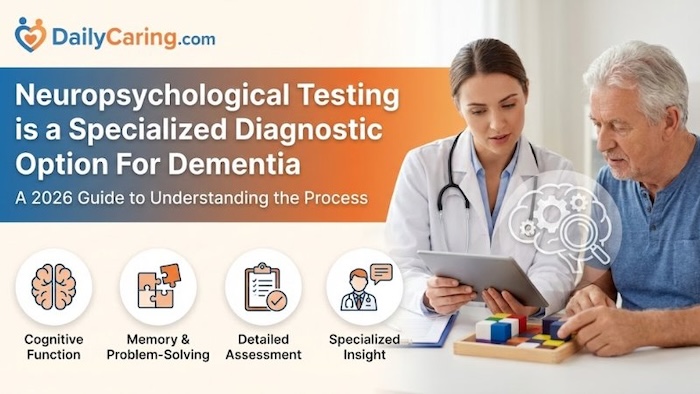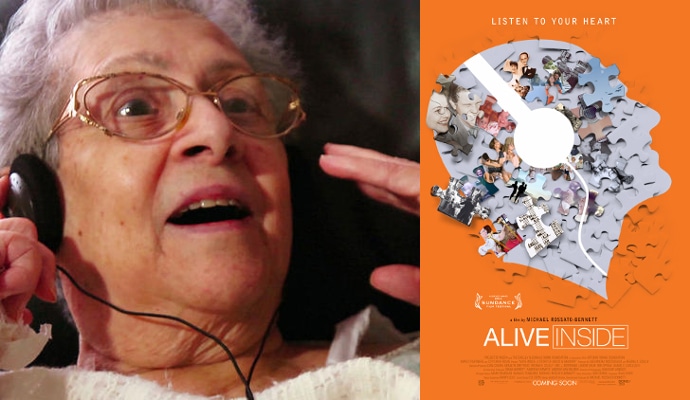So many families ask, “How is dementia diagnosed?”
If you're concerned that your loved one might have Alzheimer's disease or dementia, it's essential to know how to get an accurate diagnosis. This is essential because other reversible health conditions could cause dementia-like symptoms. A correct diagnosis is necessary for appropriate treatment.

Knowing what a doctor should evaluate helps you protect your loved one in case their doctor jumps to a diagnosis without conducting a thorough exam and tests.
What it Takes to Get a Dementia Diagnosis
Dr. Leslie Kernisan, an experienced geriatric doctor , wrote an article to explain how doctors typically evaluate and diagnose problems with memory, thinking, or judgment.
She outlines the basic diagnostic tests, the required information, and the process duration.
Here, we summarize key points from her article:
- 5 key symptoms of dementia
- 5 steps doctors take to diagnose dementia
- Why can’t dementia be diagnosed in a single doctor’s appointment?
- What to do if you feel the doctor may be jumping to conclusions
- How to prepare if your older adult needs to be evaluated for Alzheimer’s disease or dementia.
5 Key Symptoms of Dementia
Dr. Kernisan describes the five issues that people with dementia typically experience:
- Difficulty with one or more types of mental function, like learning, memory, language, judgement
- Problems that are a change compared to the person’s usual abilities
- Issues that make it difficult for them to manage everyday life responsibilities, like work or family
- Issues that aren’t caused by another mental disorder, like depression
5 Steps Doctors Take to Diagnose Dementia
Doctors typically go through 5 areas of evaluation to determine whether someone has dementia. The doctor needs to check each area and document their findings.
1. Difficulty with mental functions
This is usually evaluated using a combination of an office-based cognitive test and assessment of real-world problems through interviews with the patient and those close to them.
2. Decline from the previous level of ability
This can be more difficult for a physician to determine, so they need to talk with people who know the patient well to understand the patient's previous abilities versus what they can do today.
For example, if a former accountant can no longer do basic math, that’s a decline from their previous ability.
3. Impairment of daily life function
This can also be difficult for doctors to evaluate independently.
The doctor will ask people close to the patient about the types of help the person is receiving in their daily life and any problems family members have noticed.
4. Reversible causes of cognitive impairment
Certain conditions can cause temporary dementia-like symptoms.
Delirium can seem like Alzheimer’s or dementia and is usually caused by illness, infections, or a hospitalization and can last from weeks to months.
Other medical problems that interfere with thinking skills include medication side effects, thyroid problems, electrolyte imbalances, B12 deficiency, substance abuse, and other treatable health conditions.
5. Other mental disorders
Depression is a common mental health issue for seniors and can sometimes be confused with dementia symptoms.
And sometimes, they could have depression and dementia at the same time.
It’s also important to consider the person’s mental health history. Paranoia or delusions could be related to mental health conditions like schizophrenia.
Dementia Isn't Normally Diagnosed in a Single Visit
The five areas a physician must evaluate to provide an accurate dementia diagnosis are complex and require extensive information gathering and laboratory testing.
It is improbable that any physician could make an accurate diagnosis in a single office visit.
What to do if a doctor jumps to a diagnosis in a single visit
Unfortunately, some doctors do jump quickly to a dementia diagnosis in only one visit. Even worse, they don’t properly document the rationale for their decision.
If this occurs, you may wish to seek a second opinion from a physician who is willing and able to conduct a more thorough evaluation and testing.
Yes, there is a chance that your older adult's symptoms could mean that they have dementia.
But what if their dementia-like symptoms are caused by other reversible health conditions?
That’s why an accurate diagnosis is essential for proper treatment.
How to Prepare For a Dementia Evaluation
If you’re concerned that your older adult could have Alzheimer’s or dementia, Dr. Kernisan provides a free tip sheet of the types of information you should gather to help the doctor make a better and faster diagnosis.
Final Thoughts About How to Diagnose Dementia
Navigating the path to a dementia diagnosis can feel daunting, but it is a journey toward clarity, understanding, and empowerment. It is not a single test but a careful, multi-faceted investigation designed to uncover the true nature of what's happening.
This process respects the complexity of the human brain and the individuality of your loved one's experience. By working with a specialist like a geriatrician, you are not just seeking a label; you are building a foundation for the most compassionate, appropriate, and effective care possible.
A proper diagnosis provides the map you need to plan for the future, access vital resources, and ensure every step forward is intentional and supported. This knowledge, though challenging to face, is the key to providing the best quality of life in the chapter ahead.
Recommended for you:
- 7 Treatable Health Conditions with Symptoms Similar to Dementia
- Signs of Alzheimer’s or Normal Forgetfulness?
- Mild Cognitive Impairment: Not Dementia, But More Than Normal Forgetfulness
About the Author

Connie is the founder of DailyCaring.com and was a hands-on caregiver for her grandmother for 20 years. (Grandma made it to 101 years old!) She knows how challenging, overwhelming, and all-consuming caring for an older adult can be. She also understands the importance of support, especially in the form of practical solutions, valuable resources, and self-care tips.














My Doctor refuses to check my husband or refer him to anyone. He has even forgotten where his cigarettes are kept. Yes strangly he can read and understand books. Cant be taught to open cans of food or use a simple mobole phone. Cant even understand how to heat a ready meal. Is able to just get 1 or 2 mins ok on microwave dial. Told the occupational therepist he is fine. Can cook. Never known this in 25 years together. Gets so very angry at me if i say anything like You know where the cigarettes are !
We’re sorry to hear that all this has been happening and your doctor hasn’t been helpful. It sounds like it’s time to find a new doctor who is experienced in caring for older adults and people with dementia.
My husband was diagnosed 6 months. I’m his sole provider. I started teaching online because of COVID so that has allowed me to stay with him. I love my husband and I’m willing to be there for him and care for him in any way he needs. It’s hard though…
It’s wonderful that you’re able to teach online so you can spend more time with your husband. It is indeed challenging to care for someone with dementia.
These articles may be helpful:
– 13 Caregiver Support Groups on Facebook https://dailycaring.com/support-groups-for-caregivers-on-facebook/
– Articles with dementia communication techniques https://dailycaring.com/tag/alzheimers-dementia-communication/
– Dementia-friendly activity suggestions https://dailycaring.com/tag/alzheimers-dementia-activities/
– Articles to help with challenging dementia behaviors https://dailycaring.com/tag/challenging-dementia-behaviors/
– All our articles about Alzheimer’s & Dementia https://dailycaring.com/category/health-conditions/alzheimers-dementia/
How horrible! 1 1 How frightening! 1 1 I saw so many precious friends go through ths sort of treatment! ! !They are all in heaven now. I am so very very thankful that thus far my darling son and daughter in law assure me that I am as mentally competent as ever.A year ago a doctor tested me for dementia just because I had tripped and fallen and came to her for a wound treatment. I was told that I “aced’ the exam.At 87, i am enjoying life a lot. However, I dread the possibility of losing my precious freedom.
It’s wonderful to hear that you’re in good cognitive health!
This is exactly what my husband & I going through. Last summer i took him to a memory testing doctor, had been seen there once before back 4 years ago. My husband has multiple health issues, CHF, diabetes uncontrolled, chronic depression.that dr’s diagnosis is vascular dementia with behavioral issues. He is unable to have MRI to rule it out because of uncapatible pacemaker/defibulator.
When requesting a second opinion we were denied & sent to a neurologist & a psychiatrist. At the time of Diagnosis they were basing it on previous hospital stays & determinations of a stroke & heart attack. Cardiologist had stated that these were
incorrect diagnosis. Should i take him to be retested some where else?
It can definitely be a long and challenging process to get a proper dementia diagnosis. If you’re questioning the current diagnosis, you may want to keep working on getting a second opinion from a different doctor or specialist. You may also want to speak further with the cardiologist to understand why they’re saying that the diagnosis is incorrect.
You might also want to seek out a geriatric doctor, who specializes in senior patients, or a doctor who specializes in people with dementia.
We’ve got more info on geriatric doctors here – What Does a Geriatric Doctor Do? How Seniors Can Benefit From a Specialist https://dailycaring.com/what-does-a-geriatric-doctor-do-find-out-from-experts/
That’s all well and good but what if the patient flat out refuses to see a doctor. My mother all her life has avoided and distrust doctors. I can’t even get her into a office let alone agree to any testing
That can definitely be a tough situation. Sometimes it’s necessary to find creative (or even sneaky) approaches to get someone to do what’s necessary to keep them as healthy as possible.
To get her to the doctor, you may need to trick her into going. Even if she may be angry about it later, the more important thing is to make sure the doctor can evaluate her health.
One idea is to secretly make a doctor’s appointment and not mention the appointment at all. It’s a good idea to speak with the doctor’s office ahead of time to explain the situation and ask them to help out as much as possible.
Then on the appointment day, don’t tell her that she’s going to the doctor and say that you’re going out to lunch, to have coffee, meet a friend, go grocery shopping — whatever it is that she enjoys or that she’ll go along with.
Then, head for the doctor’s office and when she asks why you’re going there, say that you just need to make a quick stop first before going to do the activity. You could even say that you need to pick something up from “your” doctor.
Hopefully once she’s in the doctor’s office, she’ll be able to follow the routine of the office visit and the nurses and staff will help.
Hopefully this will help you brainstorm ideas that will work best for your situation.